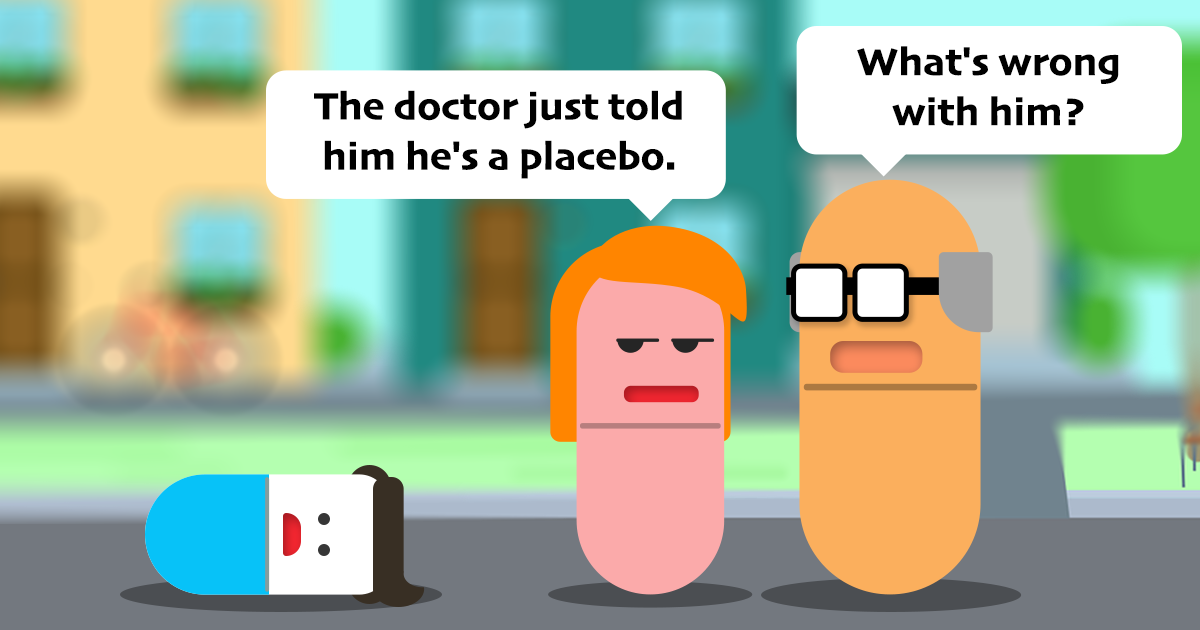While it may be hard to believe, many people claim to be cured or experience marked improvement when receiving a treatment that is actually an inactive substance! It seems that the effect of hoping, wishing, believing that a treatment will help, causes people to report that they are better. Treatments that don’t really provide any known benefit are called “placebo” and the phenomenon whereby patients experience improvement in their condition when taking a placebo is called “the placebo effect.”
Due to this known “placebo effect”, when researchers are looking at new potential treatment options and trying to determine if a treatment really works or not, they have to consider and compare the results of the actual treatment to a non-treatment placebo.
Not all studies utilize a placebo and if you choose to join a study that is using a placebo, you will be informed by the clinical staff. But don’t worry! You still have options:
1. You can always drop out of a study if you don’t feel that there is any benefit.
2. Many studies offer a “rescue therapy” for when patients are not experiencing a benefit in which they are switched to a known, approved therapy.
3. You might experience a placebo effect yourself and feel better, even if the treatment has nothing to do with it!
Researchers are working hard to find new options that can better treat or even cure medical conditions. We can also contribute to this effort by volunteering and helping researchers understand how new investigational treatments are working.
Consider a clinical study today. You can search for local studies in your area right here on MyLocalStudy.com. Participants in studies often receive medical care and oversight by medical doctors and staff at no cost and are compensated for their study commitments.
To search for local studies, CLICK HERE!

